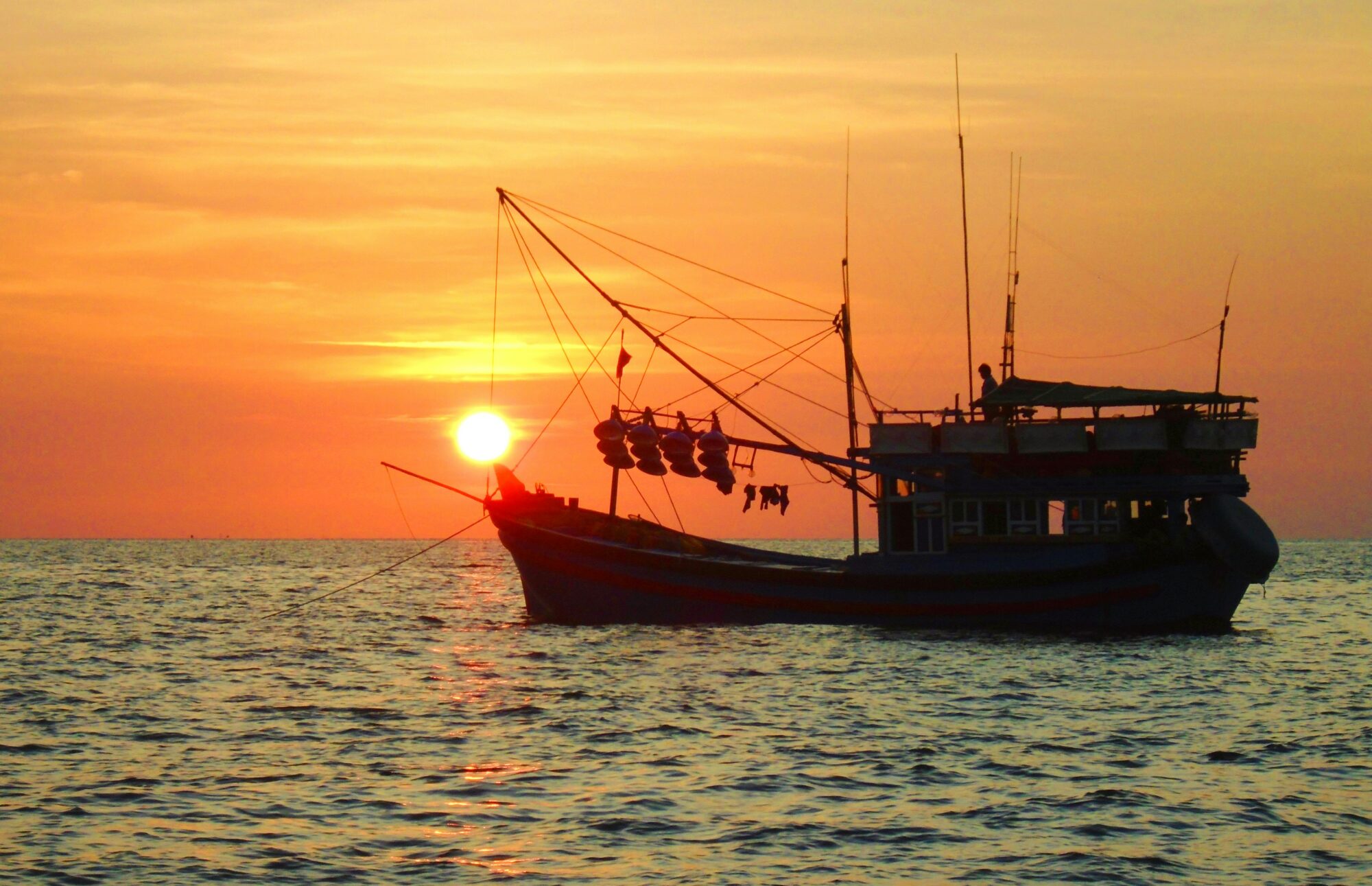WASHINGTON, September 5, 2024 – New research conducted by Katrina Nakamura of The Sustainability Incubator and funded by Humanity United and the Freedom Fund finds that a well-known, consumer-friendly ecolabel stamp does not effectively protect fishers from labor violations.
The Marine Stewardship Council (MSC) ecolabel exerts significant influence on market perceptions of sustainability. In a Sustainable Tuna Handbook published in 2022, the MSC made the claim that “the best way for tuna buyers to significantly reduce exposure to the above risks [including forced labor in fishing] is to choose MSC certified tuna.” In 2023, the MSC announced that it had engaged 59% of the world’s tuna, meaning that most tuna on the planet could be associated with the broad statements the MSC has made about fishing labor.
“Consumers familiar with ecolabels see the MSC’s logo on their tuna cans and may assume that this is a vessel-level certification, and thus the fish they’re purchasing and consuming was caught without the use of forced labor,” said Ame Sagiv, Senior Director, Forced Labor & Human Trafficking at Humanity United. “Instead, certifiers are hired to assess whether government regulations for a specific area where fishing takes place meet the MSC’s standard and if they do, a certificate is issued. In truth, the MSC knows very little about the vessels – the workplaces – where the fish is caught or how it was caught. So how can they possibly put a stamp of approval on a product brought to market, without knowing more about who brought it there?”
As a result, the MSC may be leading buyers to think they’re buying fish that’s been caught in an ethical and sustainable way. The paper’s major findings include:
- The MSC does not assess working conditions on vessels. Instead, the ecolabel relies on assessments of government regulations and self-reported information from trade associations, manufacturers, and distributors.
- Seventy-four percent of ecolabeled tuna comes from vessels with no listed employer, illustrating that the MSC does not have knowledge of all owners of vessels catching MSC-certified fish and the vessel employment practices and violations for which these employers are responsible are unknown.
- Data from MSC tuna vessel lists and client self-declarations about tuna fishing labor did not “offer an overview of labour risk management practices at the vessel level” or “illustrate practical approaches in place across MSC certified fisheries to prevent child and forced labour.”
- A search limited to high-profile reports in the English language found that fishers have reported forced labor on multiple vessels in the program since 2019.
- The MSC’s tuna data does not portray a program designed in ways that would prevent or discover forced labor on fishing vessels or prevent harms to tuna fishers.
The findings of this research shed much needed light on industry certifications. “Research into certifications is important, as brands, retailers and consumers rely on them to ensure certain standards are adhered to,” said Sarah Mount, Senior Program Manager at The Freedom Fund. “But it’s often difficult to understand how certifications actually work and whether we can really rely on them. This research breaks down the MSC certification and points out the big gaps in relation to protection of the workers themselves.”
An estimated 128,000 fishers are trapped in forced labor aboard fishing vessels by businesses recruiting for very low wages to work intensely in hazardous and remote conditions. According to the report this includes the United 6, a group of six fishermen demanding justice for violations they claim were committed by their employers, U.S.-based McAdams Fish. The company and the Philippines-based Pescadores recruiting agency were working on vessels catching MSC-accredited fish. The workers were not paid as promised, and were abandoned from September to December 2023 in Westport, Washington, without any clarity provided by Pescadores and McAdams.
About Humanity United
Humanity United is a philanthropic organization dedicated to cultivating the conditions for enduring peace and freedom by supporting partners who are working to advance human dignity and change the systems that enable violent conflict and human exploitation around the world. Together, we strive to foster a more inclusive, free, and peaceful world where all people have an opportunity to flourish.
About The Freedom Fund
The Freedom Fund is a global fund with the sole aim of helping end modern slavery. We are a catalyst in the global effort to end modern slavery, working in the countries and sectors where it is most prevalent. We invest in and partner with organisations and communities on the frontlines of ending exploitation. By partnering with those at risk of modern slavery as well as visionary investors, governments and anti-slavery organisations, we bring together the knowledge, the capital and the will needed to dismantle the systems that allow slavery to exist and thrive. Through our investments and support, we aim to shift power, so that frontline organisations and communities can shape and drive the change required to bring modern slavery to an end.
Contact: Ayan Ahmed
Manager, Strategic Communications, Humanity United
aahmed@humanityunited.org
202-503-3222
